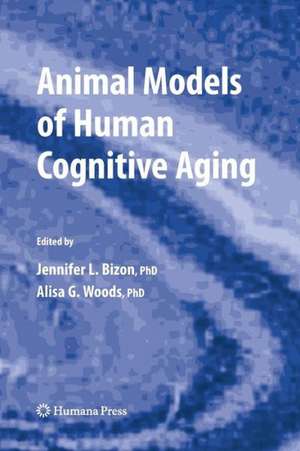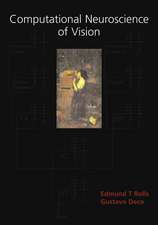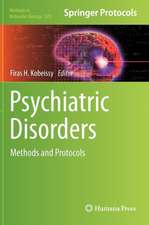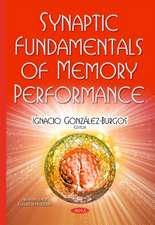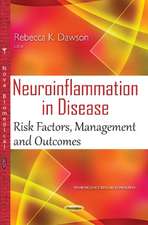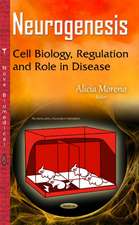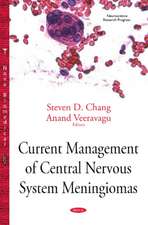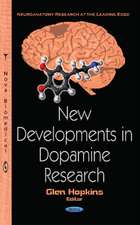Animal Models of Human Cognitive Aging: Aging Medicine
Editat de Jennifer L. Bizon, Alisa Woodsen Limba Engleză Paperback – 22 noi 2014
| Toate formatele și edițiile | Preț | Express |
|---|---|---|
| Paperback (1) | 941.38 lei 6-8 săpt. | |
| Humana Press Inc. – 22 noi 2014 | 941.38 lei 6-8 săpt. | |
| Hardback (1) | 945.79 lei 6-8 săpt. | |
| Humana Press Inc. – 12 dec 2008 | 945.79 lei 6-8 săpt. |
Preț: 941.38 lei
Preț vechi: 1148.02 lei
-18% Nou
Puncte Express: 1412
Preț estimativ în valută:
180.12€ • 188.09$ • 148.75£
180.12€ • 188.09$ • 148.75£
Carte tipărită la comandă
Livrare economică 15-29 aprilie
Preluare comenzi: 021 569.72.76
Specificații
ISBN-13: 9781627038034
ISBN-10: 1627038035
Pagini: 228
Ilustrații: XII, 208 p.
Dimensiuni: 155 x 235 x 12 mm
Greutate: 0.33 kg
Ediția:2009
Editura: Humana Press Inc.
Colecția Humana
Seria Aging Medicine
Locul publicării:Totowa, NJ, United States
ISBN-10: 1627038035
Pagini: 228
Ilustrații: XII, 208 p.
Dimensiuni: 155 x 235 x 12 mm
Greutate: 0.33 kg
Ediția:2009
Editura: Humana Press Inc.
Colecția Humana
Seria Aging Medicine
Locul publicării:Totowa, NJ, United States
Public țintă
ResearchCuprins
Normal and Pathological Aging: From Animals to Humans.- Nonhuman Primate Models of Cognitive Aging.- Age-Related Effects on Prefrontal Cortical Systems: Translating Between Rodents, Nonhuman Primates, and Humans.- Comparison of Different Cognitive Rat Models of Human Aging.- Mouse Models of Cognitive Aging: Behavioral Tasks and Neural Substrates.- Impact of A #x03B2; and Tau on Cognition in Mouse Models of Alzheimer#x2019;s Disease.- Hormonal Influences on Brain Aging and Age-Related Cognitive Decline.- Timing Deficits in Aging and Neuropathology.
Recenzii
From the reviews:
"This multiauthored series of essays describe animal models of human cognitive aging. … The audience includes the community, working in neurobiology and interested in age-related changes in brain function. The authors are all experts in this area. … Everyone interested in experimental models of the aging of the human brain will derive timely and useful information by delving into this excellent book." (David O. Staats, Doody’s Review Service, June, 2009)
"This multiauthored series of essays describe animal models of human cognitive aging. … The audience includes the community, working in neurobiology and interested in age-related changes in brain function. The authors are all experts in this area. … Everyone interested in experimental models of the aging of the human brain will derive timely and useful information by delving into this excellent book." (David O. Staats, Doody’s Review Service, June, 2009)
Textul de pe ultima copertă
Significant improvements in lifestyle and medical science are leading to an ever increasing elderly population in the United States and other developed nations. The U.S. census bureau estimates the number of people over 65 will nearly double by 2030, and that the elderly population will comprise nearly one-fifth of the world's entire population within the next twenty years. In Animal Models of Human Cognitive Aging, Jennifer Bizon, Alisa Woods, and a panel of international authorities comprehensively discuss the use of animal models as a tool for understanding cognitive changes associated with the aging process. The book provides substantive background on the newest and most widely used animal models in studies of cognition and aging, while detailing the normal and pathological processes of brain aging of humans in relation to those models. Additional chapters comprehensively review frontal cortical deficits and executive function in primates as related to humans, and the use of transgenic modulation in mice to model Alzheimer's and other age-related diseases. Groundbreaking and authoritative, Animal Models of Human Cognitive Aging provides a valuable resource for Neuroscientists, Gerontological Scientists, and all aging medicine researchers, while serving as a primer for understanding current brain aging studies.
Caracteristici
Comprehensively discusses the use of animal models as a tool for understanding cognition and the aging process Provides substantive background on the newest and most widely used animal models in studies of cognition and aging Details the normal and pathological processes of brain aging of humans in relation to animal models Reviews the role of frontal cortical deficits and executive function in primates as related to humans as well as the use of transgenic modulation in mice to model Alzheimer’s and other age-related diseases Includes supplementary material: sn.pub/extras
